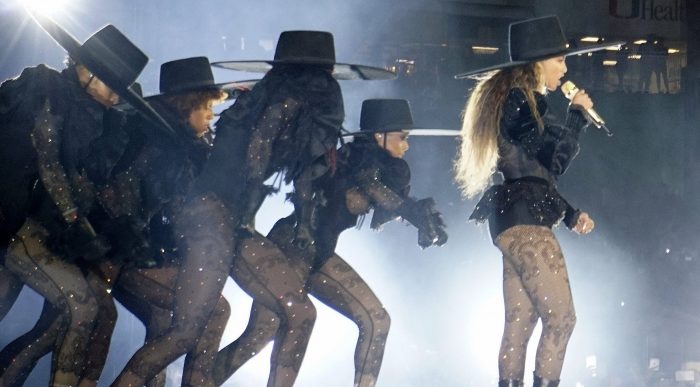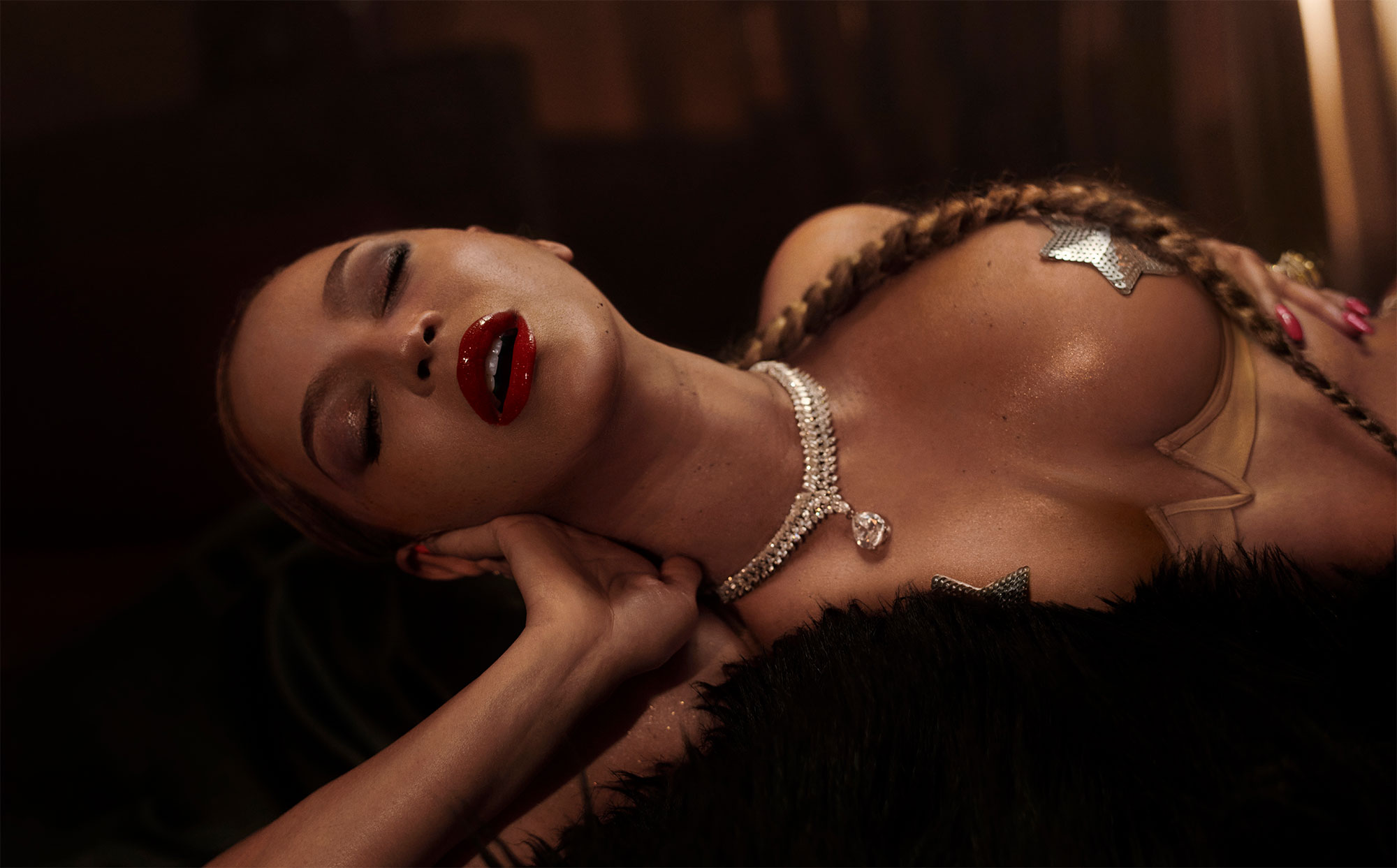Awe has always seemed like the only appropriate response to Beyoncé, a star who makes even the best of the rest look a bit amateur. She tells us over and over again that she’s number one (she woke up like this, she’s flawless, fresher than you, she slays every day) – and we sing along because they’re all unassailably true. She sounds, moves and looks like a goddess and most of us “bow down” accordingly.
But when she surprise-released Lemonade, an hour-long film presentation of her sixth studio album, there was suddenly a radical new dimension to this rhetoric of self-affirmation. Threaded with the bold and bodily poetry of British-Somali poet Warsan Shire, steeped in antebellum imagery and peopled with phalanxes of young black women, the film takes its title from footage of Hattie White, Beyoncé’s grandmother-in-law, giving a speech at her 90th birthday party. “I was served lemons,” she says slowly, melodiously. “But I made lemonade.”
Beyoncé’s subject emerges as nothing less than the black female body, the police state and black lives past and present. The lemonade that she’s making in her 34th year isn’t just from the bitter juice of her famous husband’s infidelities, it’s the pain of black mothers and grandmothers and their mothers. Suddenly, she is doing something so much bigger than telling us she’s the flyest. She’s telling us you can make something sweet out of something bitter, something as defiant, victorious and straight up glorious as Formation – a black power anthem that’s also the rump-shaking banger that closes Lemonade. It’s this she opens with tonight, to a sold out Marlins stadium, on the first night of a sold-out tour, confirming, within seconds, that she did not come here to play, she came here to slay.
Even the merch confirmed the ruthlessness: you could buy T-shirts printed with “Boycott Beyoncé”, a reference to the ruckus over whether or not the Miami police would indeed boycott the show. (Their feelings were hurt, it seems, by her Super Bowl performance, which paid homage to the Black Panthers.)
Tonight the stage is set with a colossal white prism upon which she’s frequently rendered 50ft high, thus making her real self look tiny. But whether watching her small self on stage, or as a screen giantess, it’s stupefying to see her snap from mane-tossing snarl to still, seraphic smile in a disarming instant. In Don’t Hurt Yourself, for example, with its explicit, enraged threat (“This is your final warning / You know I give you life / If you try this shit again / You gon’ lose your wife”) her fury is so incandescent that when actual pyrotechnics flame red from the stage the illusion is perfect: she’s caused this spontaneous combustion herself.
By contrast, she practically swoons through All Night, sublime and adoring. Speaking of adoring: she gives due and scrupulous love to her Beyhive fan club tonight. One interlude includes projections of YouTube fan videos but even better are the two young women she picks from the crowd (prearranged, most likely, but who cares) to dance every move to Single Ladies.
Later in her set she introduces Survivor, the 2001 Destiny’s Child classic, with these murmured words: “If you’ve survived any bad relationships”, and here she gave a very small smile that you could feasibly describe as wry. “If you’ve survived anything in your life, I want you to celebrate with me tonight”.
The more explicit reference to Jay Z, however, comes later. “I want to dedicate this song to my family,” she says, and there’s a roar of affirmation. “I want to dedicate this song to my beautiful husband, I love you so so much” and the roar doubles in decibels. The song is Halo, 2008’s indelible ballad addressed to “the only one that I want … my saving grace … everything I need and more” and it’s the last song of the night.
She sings it alone on stage in her bare feet, hair wet from a previous number, and seems to know, as the crowd does too, that neither she nor the moment can be improved on. We don’t even need one final blast of white fireworks from the front of the stage but here they are, soaring off, as she tells us she loves us. Four women around me wipe away mascara trails as they stand looking.
It is not, however, the most moving moment of the show.
It seemed inevitable that this first night would include some kind of tribute to Prince, particularly since her debt wasn’t just the cultural one that we all owe him but a deeply personal one too: he was the man that told her if she learned to play piano she’d be unstoppable. (Lemonade features her cross-legged at her keyboard, playing and singing Sandcastles.)
Which song would she cover? None, it turned out, because she did one better. Stars of her magnitude understand when their own brightness might eclipse the thing they want to honor. They understand when to vacate. And, in her case, that meant turning a giant white cube violet, leaving the stage and letting Prince’s Purple Rain play to a stadium full of people, waving their iPhone lights slowly in the night.

